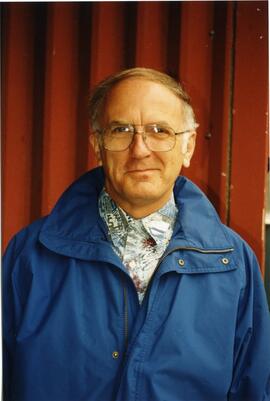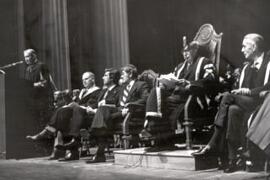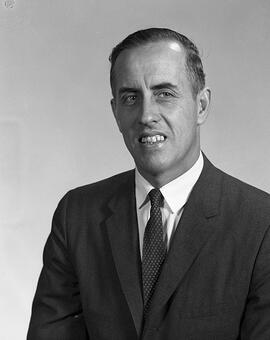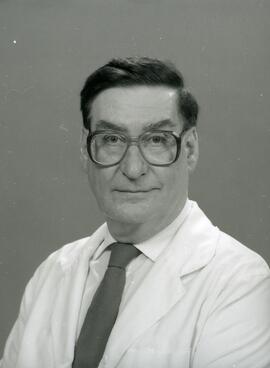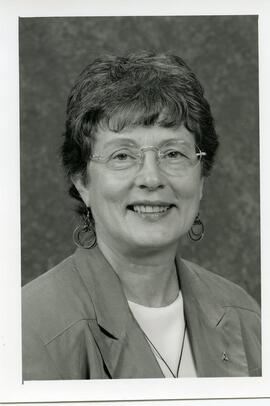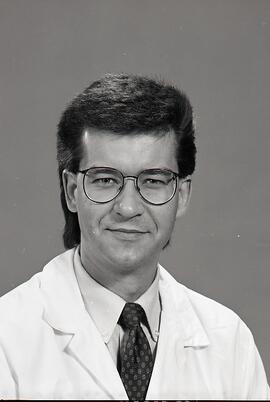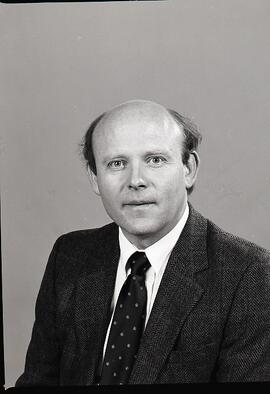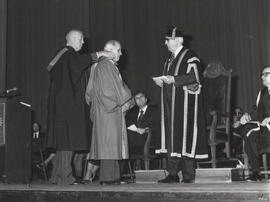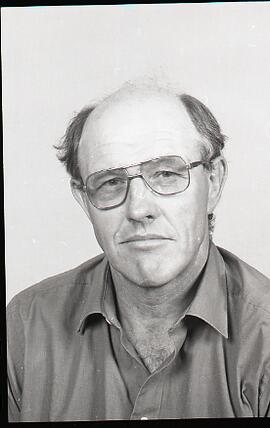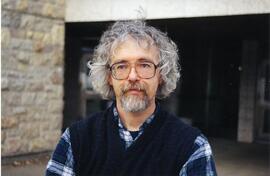- A-11433
- Item
- [1995?]
Head and shoulders image of Dr. John King, professor of Biology.
Bio/Historical Note: Dr. John King began studying at King's College, Newcastle in Durham University (UK) in 1957 and was awarded a BSc Honours (First Class) in Botany in 1960. After earning his PhD in plant physiology at the University of Manitoba, Dr. King joined the faculty of the University of Saskatchewan as an assistant professor of Biology in 1967. There for more than 35 years, Dr. King was named Professor Emeritus upon his retirement in 2003. Dr. King researched a variety of plant cell phenomena, including "membrane transport, somatic cell hybridization, cell genetic transformation and, most notably in the long term, biochemical mutant isolation." He was a pioneer in the exploration of the genetic basis of physiological and metabolic processes using biochemical mutants of plant cells and of whole plants. Dr. King’s work has received international recognition and has included research to develop techniques of gene transfer for use in economically important plants, the study of the effect of specific herbicides on plant amino acid metabolism, and the isolation of mutant herbicide-tolerant plants. In addition to his research Dr. King served as the Group Chair for Life Sciences within the Natural Sciences and Engineering Research Council (NSERC), as president of the Canadian Society of Plant Physiologists (CSPP) for 1983-1984, and as associate editor of the Canadian Journal of Botany. He wrote two books The Genetic Basis of Plant Physiological Processes (1991) and Reaching for the Sun (1997) and numerous articles. The Canadian Society of Plant Physiologists (CSPP) awarded Dr. King the society's 2001Gold Medal in recognition of his contributions to the field of plant physiology. Dr. King is Professor Emeritus of Biology (2021).



